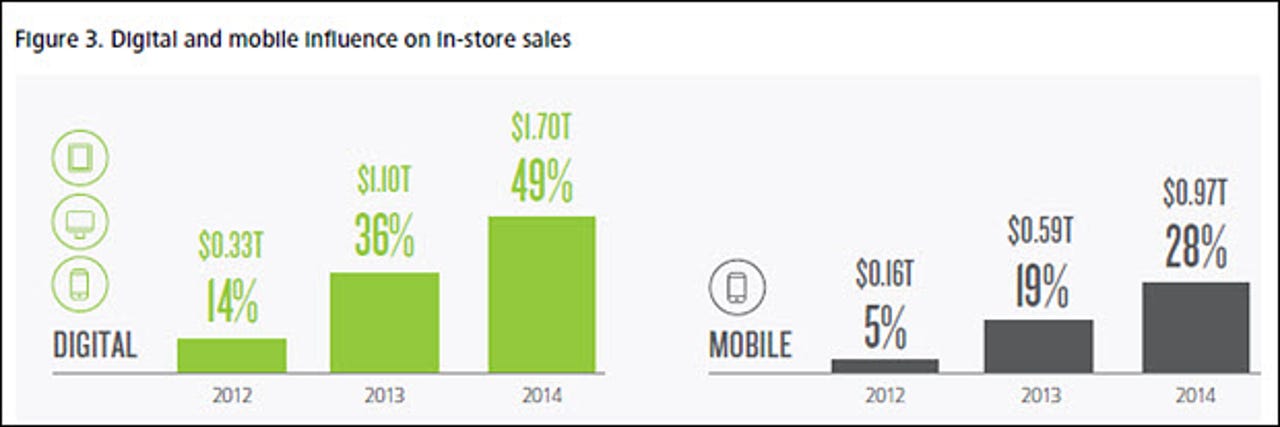Business
Digital transformation can save the CIO
Although IT is under fire, the opportunity to play a larger corporate role is here. The key is learning how to increase the relevance of IT.

As cloud computing grows, many CIOs are concerned about technology budgets shifting away from IT and into other corporate functions such as marketing and finance. These concerns are realistic because, in truth, as business people become more technology savvy, their independence and desire for control increases.
However, these sentiments mask a dynamic that should give CIOs and IT high hopes. Digital transformation and the increased emphasis on customer experience, will create an exploding need for business-savvy IT leaders. Because digital rests on technology and platforms as vehicles to enable business change, IT has a crucial role to play in the coming years.
A few data points help paint the picture.
In retail, digital interactions will influence 64 cents of every dollar spent in retail stores by the end of 2015. Fascinating research by Deloitte discusses the premise that:
mobile technology and easy access to digital information not only affects sales in digital channels, but also has a much broader impact on in-store sales and in-store consumer behavior.
The graphic below shows the impact of digital and mobile on in-store retail sales, along with growth rate between 2012 and 2014.

And here is the projected growth rate for 2015:
Gartner claims that "digitalization" (ie: digital transformation) will create a "third era" [pdf download] of enterprise IT.
Coinciding with this new age of IT, Gartner's research shows that CEOS and senior executives view technology as a "higher priority than ever before."
Customer engagement and user experience are cornerstones of digital transformation. Research from Ventana describes typical communication channels [pdf download] that companies use to interact with customers. Each of these channels requires its own set of processes and technologies.
The CEO of EMC, Joe Tucci, believes that IT is undergoing its largest shift in history. He says that digital transformation, security, and lowering costs are causing the "biggest secular shift in the history of IT:"
Customers are very focused on building their new digital agendas and in effect become true digital enterprises.
This digitalization is changing the way enterprises are building their products, the way they service their products, the way they sell, and the way they interface with their customers, partners and supply chains. And as such, more IT spend is being pushed toward this priority. And it goes without saying that in this digital era, every enterprise is increasing their focus on cybersecurity, as the surface area for attacks will expand geometrically.
... While this shift is very disruptive, it is also extremely opportunity rich.
Digital transformation and relevance
We hear much discussion around the devaluing and disruption of IT. As the references listed above indicate, technology is proliferating through the enterprise and senior execs recognize its value and importance. Given that, why does IT face perceived problems?
Also read:
Dion Hinchcliffe: Closing the gap between executives and digital transformation
The issue is not control over enterprise technology, but the relevance of IT in helping the business realize specific projects and goals. As business units and departmental functions become more sophisticated with technology, their dependence on IT to supply expertise will decline. It is a natural consequence as business people gain technical expertise.
In this environment, IT owns the burden of remaining valuable and relevant. When IT offers good solutions at a reasonable pace and cost, then business owners will seek assistance. Slow down the business and they will find external solutions on their own. Cloud makes this easy.
Of course, infrastructure, corporate security policies, and integration will always remain IT tasks because these "meta-level" functions cross organizational boundaries and require standard policies and governance across the enterprise.
Although one can argue that infrastructure functions should remain the lifeblood of IT, is it not better for the CIO to participate in activities that directly support business initiatives? Relevance happens automatically when the CIO and IT work closely with business people to collaborate on solving meaningful challenges in a timely manner. Although infrastructure is crucially important, it lacks sufficient psychological immediacy to create an urgent sense of relevance for IT.
Digital transformation promises a golden age of IT for CIOs who build the people, competencies, and processes needed to get the right things done fast. Relevance will be the mark of CIOs who survive this great IT transition.